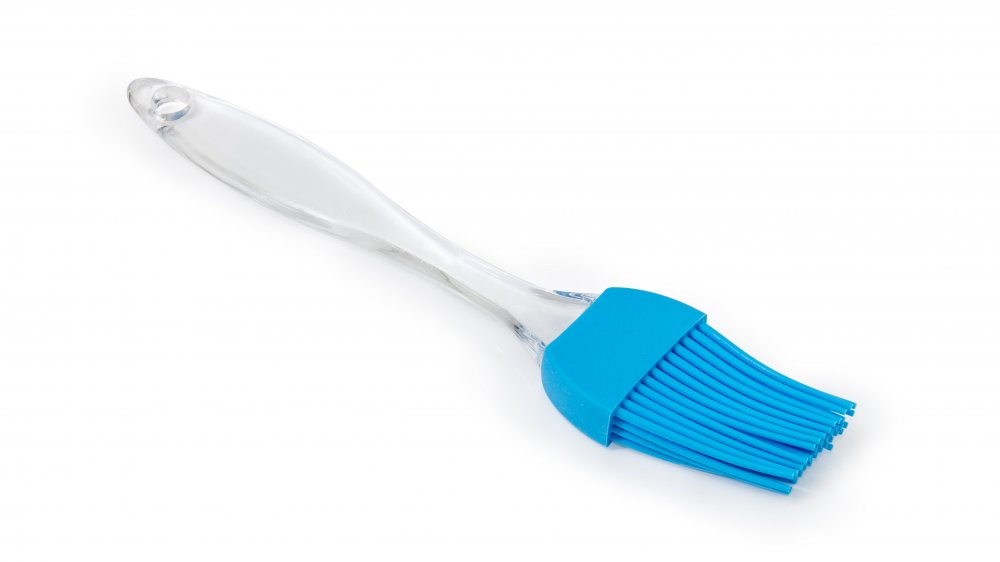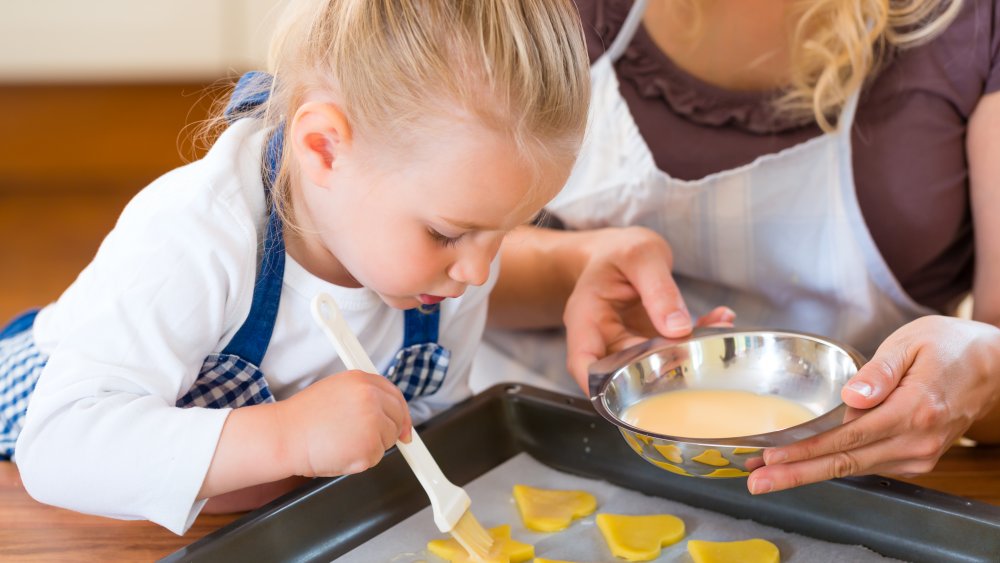The Reason You Should Ditch Your Silicone Pastry Brush For Good
If you're a baker, you know that many breads and pastry favorites need to be finished with an egg wash, or lightly brushed with butter. One example: Challah dough (via Tori Avey). The egg wash step is best done with a pastry brush, which comes in a number of varieties. Traditionally, they were made with boar's hair because the hair is coarse yet flexible, but pastry brushes are also fashioned out of nylon and silicone.
However, the silicone option is not particularly effective when compared to the other options (via Food & Wine). Both nylon and boar bristle brushes are comprised of hundreds of hairs, which allows for the brush to carry a significant amount of the liquid to the intended surface. And, since silicone is non-porous, a liquid such as egg wash doesn't adhere to it. What you're looking for is a "sticky" brush to transfer the liquid, rather than a brush from which the liquid will quickly drip right off.
Pitfalls of silicone pastry brushes
Because the silicone brush bristles are significantly wider than the bristles on boar-bristle or nylon brushes, and because the number of bristles pales in comparison, it's tougher for whatever liquid you're applying to be spread evenly on the intended surface. Uneven application is common, as are areas which remain completely dry.
Although it may be tempting to use the silicone variety because they're easy to clean (you can toss them in the dishwasher) and don't shed bristles like boar and nylon brushes do, the drawback of using them for pastry making seems to outweigh the benefits, according to most in the culinary field. Bon Appetit also posits that silicone brushes should be reserved for "meatier" tasks with thick, viscous sauces, and where precision isn't as necessary, while a natural or nylon brush that can coat the entire surface evenly is the best option for baked goods.
Another sign that silicone is not the best option for the task is that these brushes are actually designed to withstand high temperatures, which isn't needed in the kitchen, but rather out on the grill.

